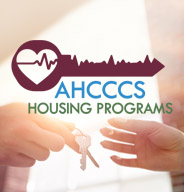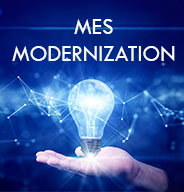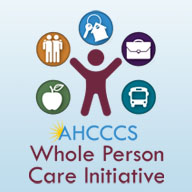AHCCCS Initiatives and Best Practices
AHCCCS has several initiatives and best practices underway aimed at building a more cohesive and effective health care system in Arizona by reducing fragmentation, structuring provider reimbursements to incentivize quality outcomes, leveraging health information technology and working with private sector partners to further innovation to the greatest extent. This page highlights ongoing initiatives and best practices with links to more detailed information and will be updated as more information becomes available.
Accessing Behavioral Health in Schools

AHCCCS partners with the Arizona Department of Education and others to ensure students, whether Medicaid-eligible or not, can receive behavioral health services either provided in a school setting or through a referral from a school. Learn more about accessing behavioral health services in schools.
Building A Health Care System: Care Coordination and Integration

Today’s health care system is a series of parts not yet connected to each other. AHCCCS has various initiatives designed to improve care coordination and communication while reducing fragmentation to weave these series of parts together. Learn more about Care Coordination and Integration.
Electronic Visit Verification
Pursuant to Section 1903 of the Social Security Act (42 U.S.C. 1396b), AHCCCS mandated Electronic Visit Verification (EVV) for non-skilled (attendant care, personal care, homemaker, habilitation, respite) and in-home skilled nursing services (home health) services on January 1, 2021. In addition to the legislative intent of EVV to prevent, detect, and recover improper payments due to fraud, waste and abuse, AHCCCS is using EVV to help ensure, track, and monitor timely service delivery and access to care for members receiving services in their homes or community, including real-time service gap reporting and monitoring. For more information visit the EVV Webpage.
AHCCCS Housing Programs

The AHCCCS’s Housing Programs (AHP) consists of the Permanent Supportive Housing and housing support programs. The majority of AHCCCS available housing funding is reserved for members with a designation of Serious Mental Illness (SMI), although limited housing is provided for some individuals without an SMI designation, but still considered having General Mental Health/Substance Abuse Disorder (GMH/SUD) needs. For persons with GMH/SUD needs, housing priority is focused on persons identified with increased service utilization including crisis or emergency services and/or services addressing complex chronic physical, developmental, or behavioral conditions. For a limited number of units within the program, eligibility is further based upon receipt of specific behavioral health services such as an Assertive Community Treatment (ACT) Team. Learn more about AHCCCS Housing Programs.
Incentivizing Quality: Payment Modernization

Modernizing the way health care services are purchased means rethinking the end product. Today’s reimbursement structure favors the provider with higher production numbers. In order to bend the cost curve, there must be a paradigm shift such that reimbursement favors the provider who achieves a quality health outcome. Learn more about Payment Modernization.
Improving Communications: Health Information Technology

The State Medicaid Health Information Technology Plan (SMHP) describes the agency’s historical, current, and future efforts to improve health outcomes by leveraging providers’ electronic health record (EHR) deployment, adoption, and use. AHCCCS is also an active participant in the Health Information Network of Arizona (HINAz), Arizona’s Health Information Exchange. Learn more about Health Information Technology.
Medicaid Enterprise System (MES) Modernization Program:

The Medicaid Enterprise System (MES) Modernization Program will modernize and upgrade the systems used to provide healthcare access and services for AHCCCS community members. The goal of the Program is to bring innovation to business and technical operations that provide high quality healthcare to our communities. The community benefits of the MES Modernization Program will include an integrated system to provide self-service and access to more information and documentation quickly. The innovative systems will allow AHCCCS to modernize and adapt to the community's current and future needs. Learn more about MES Modernization Program.
Telehealth Services

Delivering health care services through telehealth provides an alternative way for AHCCCS members to see their healthcare providers. AHCCCS covers all major forms of telehealth technologies and holds ongoing discussions with our contracted managed care health plans, providers including IHS/638 facilities, and members to determine how telehealth should be leveraged to serve our members and improve healthcare outcomes. Learn more about Telehealth Services.
Transforming Health Care Delivery: Targeted Investments Program

The Targeted Investments (TI) Program provides financial incentives to eligible AHCCCS providers to develop systems that address each individual’s whole person care needs in a culturally appropriate manner. The TI Program aims to systematically identify and reduce inequitable health outcomes by encouraging providers to thoughtfully develop infrastructure and protocols to optimize coordination of services designed to meet the member’s acute, behavioral, and health-related social needs amongst their patient population. Learn more about Targeted Investments.
Whole Person Care Initiative (WPCI)

The AHCCCS Whole Person Care Initiative is focused on improving the Health-Related Social Needs of enrolled members. Health-Related Social Needs, also known as Social Determinants of Health, have a direct impact on physical and mental health outcomes. For more information visit the WPCI Webpage.

